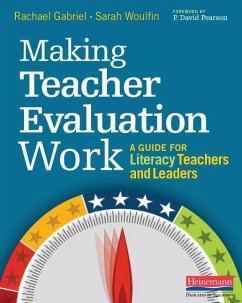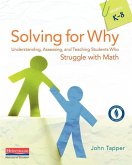"In an ideal world policy makers would never consider implementing an evaluation scheme that had generated no supportive research base. We don't live in an ideal world as evidenced by the various state teacher evaluation schemes, none of which has been found to provide reliable evidence of effective teaching or learning. Luckily, Gabriel and Woulfin offer us an informed alternative, one that allows us to evaluate literacy teachers' performance and to promote their growth. Read this book and then pass it along to your colleagues, your school administrator, or to a member of your local board of education." -Richard Allington Teacher evaluation is stressful. With mixed messages about the policies, purposes, and processes, more often than not teacher evaluations leave everyone feeling confused, anxious, and disillusioned. But what if there was a way to not only improve the evaluation process, but use evaluation as a way to improve teaching and learning? Making Teacher Evaluation Work is a resource for teachers and evaluators to read together, filling a much-needed role by providing valuable information about every step of the evaluation process. Rachael Gabriel and Sarah Woulfin walk you through the entire process --from policy to practice, --offering context and strategies with the goal of improving the teacher evaluation process for everyone involved and support student literacy learning. Starting with a clearly organized table of contents designed to help you find what you need when you need it, Rachael and Sarah examine the roles of teachers, teacher leaders, coaches, and principals in supporting high-quality literacy instruction in the context of accountability and evaluation policy. Each chapter is framed by a key question, followed by numerous scenarios, and a shareable list of points and take-and-go activities. Rachael and Sarah offer specific language and examples that will help: * create common language and standards around evaluation issues, trends, and policies * get and give clear and actionable feedback * set goals that inspire rather than restrict * select authentic measures for student growth and achievement. We know high expectations without support doesn't work for students. It doesn't work for teachers either. Making Teacher Evaluation Work shows that teacher evaluations don't have to be unproductive, but can provide the foundation for a collaborative evaluation process that improves literacy instruction, promotes teacher growth, and supports school-wide improvement.
Bitte wählen Sie Ihr Anliegen aus.
Rechnungen
Retourenschein anfordern
Bestellstatus
Storno


